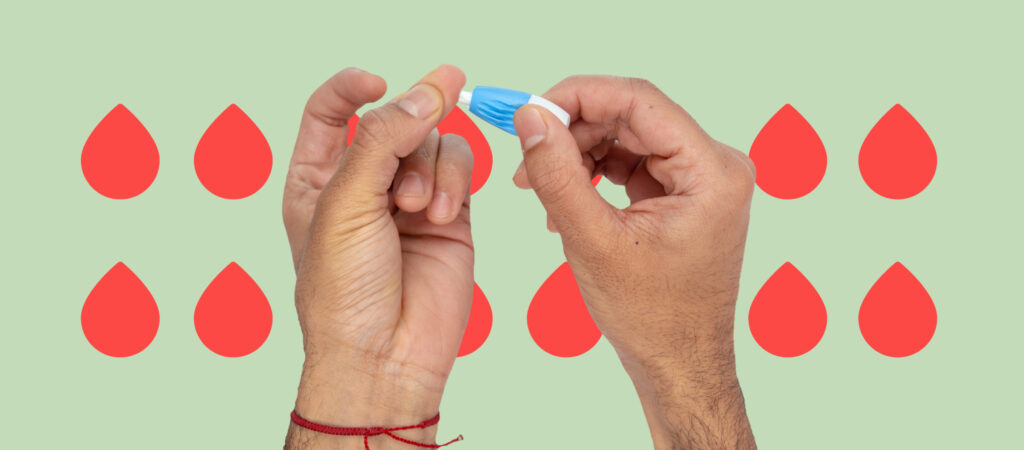HIV Testing 101
Learn about at-home and in-person HIV tests, and how often you should be tested.
Have you been avoiding getting tested for HIV? We get it that thinking about human immunodeficiency virus (HIV) might make you nervous, but getting tested shouldn’t be a source of stress. While it’s true that HIV is a life-long condition, modern medicine makes it quite manageable. With proper treatment, HIV-positive people won’t even transmit the virus to their partners. So the only thing to fear about HIV is not knowing you have it. If you’re undiagnosed, you put your health and that of your partners at risk. Here’s what you need to know about HIV testing so you can take your sexual health into your own hands.
Should You Get Tested for HIV?
The Centers for Disease Control (CDC) recommends that everybody between ages 13 and 64 get tested for HIV at least once in their lives, and certain people should be tested every year, or even more often. You should get an HIV test if:
- You have had a new sex partner since the last time you were tested
- You’re a man who has had sex with another man
- You’ve had sex with someone you know is HIV-positive
- You have been diagnosed with another sexually transmitted infection
- You’ve shared needles for intravenous drugs with others
Doing these things doesn’t mean you have HIV, but it’s better to be on the safe side and get tested.
Nurx offers PrEP for HIV prevention for as little as $0 with insurance for medication.
How the HIV Test Works
The easiest way to detect whether someone is HIV-positive is to look for HIV antibodies in either their blood or saliva. After a person has been infected with the virus, his or her body will start producing antibodies against it. These antibodies usually show up in testing two to eight weeks after the initial infection. About 97% of newly infected people show antibodies within three months of infection.
What Happens With HIV Testing at Clinics?
Getting tested at a clinic or healthcare provider’s office is one of the most common ways to check whether you have HIV. Before the emergence of home tests, it was the only way to know your status.
Some testing sites are anonymous, meaning you don’t have to provide your name to get tested. This keeps your results 100% private. At other clinics, you might need to make an appointment before arrival. Whatever the case, you’ll be asked a few questions before being administered the test. This helps the counselor learn more about your HIV risk and help you find new ways to reduce that risk.
When it’s time for the test, the technician might either take a small blood sample or stick a small probe inside your mouth for four minutes to collect saliva. After the material is collected, it is sent to a lab, and results are typically available in about one to two weeks. Some clinics offer a rapid test that can determine your HIV status in as little as 30 minutes.
What Happens With HIV Testing at Home?
At-home testing is a revolutionary new way to test for HIV because it’s totally private and convenient. When you use a Nurx STI Home Test Kit you collect a sample of your blood using a lancet and a blood spot collection card. Simply prick your finger using the lancet and gently squeeze drops of blood into circles on a card, which you then mail back to our lab. Our lab is able to analyze the dried blood spots to determine if you have HIV. You can learn more about at-home STI testing through Nurx by watching this video about home STI tests, or this video about PrEP through Nurx.
Home tests that use a blood spot card are superior to saliva tests that you can buy at a drug store because they can detect HIV in your blood as soon as a month after infection, while home saliva tests cannot detect HIV unless you’ve been infected for three months or more (learn more here). Nurx home test kits also provide a check for other common STIs, like syphilis, chlamydia, and gonorrhea. In addition, when you use a Nurx STI Home Test Kit you have unlimited access to a Nurx medical provider. If you do test positive for HIV or another STI through a Nurx home test, your Nurx provider will guide you on next steps and help get you treatment.
Why You Should Take PrEP if You’re at Risk
Getting tested for HIV is great, but what’s better is lowering your risk of getting HIV in the first place. While using condoms and dental dams during sex are smart places to start, one of the most effective methods is to take pre-exposure prophylaxis (PrEP). PrEP is a daily pill that works by lowering your chances of catching HIV from an HIV-positive partner by up to 99%. PrEP has few-to-no side effects, and Nurx makes it easy and affordable to get PrEP prescribed online and delivered to your doorstep. Getting and staying on PrEP requires you to get regular blood tests (which include and HIV test), and Nurx allows you to do these tests entirely at home.
Don’t live with anxiety about HIV! Regular testing and PrEP (if right for you) will protect your health and your peace of mind.
This blog provides information about telemedicine, health and related subjects. The blog content and any linked materials herein are not intended to be, and should not be construed as a substitute for, medical or healthcare advice, diagnosis or treatment. Any reader or person with a medical concern should consult with an appropriately-licensed physician or other healthcare provider. This blog is provided purely for informational purposes. The views expressed herein are not sponsored by and do not represent the opinions of Nurx™.







